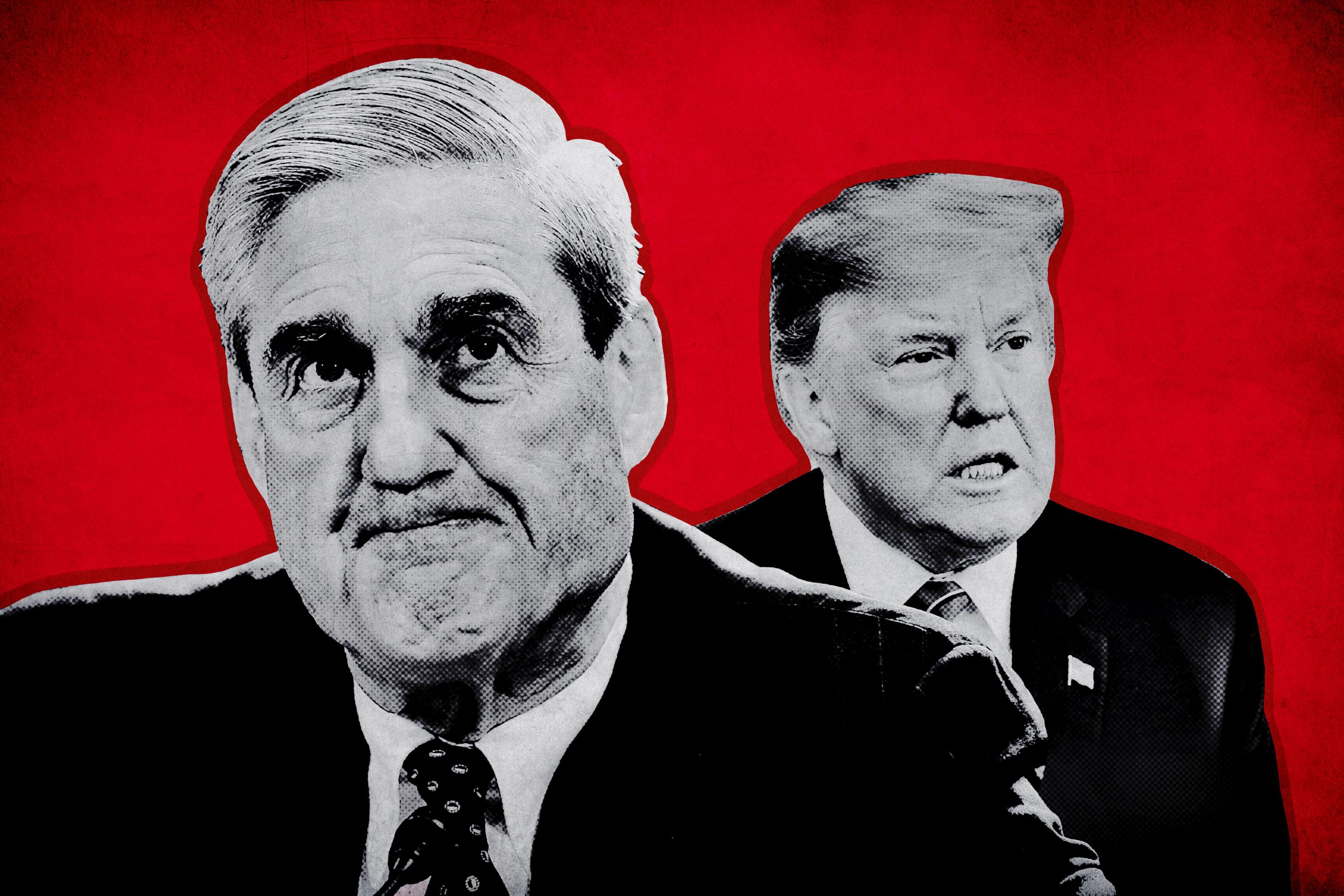
“I want to see the report,” Donald Trump told reporters on Wednesday. “Let it come out, let the people see it,” the president says.
Trump is feigning innocence and transparency about Robert Mueller’s year-long investigation of his associates—his former campaign manager, his senior political aides, his business partners. He’s also counting himself among the many political figures who clearly regard Mueller’s conclusions as the decade’s great reckoning.
That reckoning once implied presidential impeachment, an early goal among Trump’s most unruly opponents. But establishment Democrats have consistently disavowed the cause. House Speaker Nancy Pelosi—Trump’s most formidable opponent in Congress—has become the avatar of ambivalence about impeaching Trump. “He’s just not worth it,” Pelosi told The Washington Post, offering her most decisive argument against impeachment to date. It’s always been a whimsical pursuit, given Republican dominance in the Senate; and it’s become an all but lost cause as Trump nears the conclusion of his first presidential term. More than a dozen Democratic candidates have launched their presidential campaigns, scrambling to face Trump in a general election. Trump’s re-election odds are decent, if not favorable. He’s a broadly unpopular president propped up by a nonetheless excitable base. It will be easier for the Democrats to beat Trump than it will be for Democrats to remove him from office through impeachment (which would, after all, only replace Donald Trump with Mike Pence).
The dream of impeaching Trump and demoting him from the White House to Guantanamo Bay began with the president’s election 28 months ago. It persists as a struggle to disperse Trump’s conspiracy of countless fools; a conspiracy which includes countless conservatives who, as recently as two years ago, ridiculed Trump and cited him as exceptionally inept, even dangerous. The impeachment dream is eternal, and intensifying, but otherwise unchanging, even as the evidence against Trump and the politics surrounding the president transform. Congressional Republicans embrace Trump unconditionally. The reasons for Trump’s critics to believe Republicans might largely mobilize against Trump have evaporated. The polarization intensifies. The rule of law deteriorates.
Before James Comey’s firing, before Mueller’s appointment as special counsel to investigate Russia’s involvement in the 2016 presidential election, Trump’s impeachment was a simple proposition: Trump is too erratic to govern the country, and his election was too sketchy to uphold. Congress should impeach the president regardless of any specific investigation; Trump’s bombastic operation is the general proof of his illegitimacy, his potential crimes notwithstanding. The impeachment dream appealed to otherwise helpless Democrats, who languished as the minority party in both congressional chambers. For more than two years now, Trump has done his worst. He’s transformed immigration policy and the debate surrounding it into a right-wing fantasy. He’s encouraged angry misogynists and white nationalists the world over. He’s turned the White House briefing room into a glorified forum for shitposting. It would be arrogant for Trump’s critics—be they leftists, liberals, or disgruntled Republicans—to presume that the status quo couldn’t get any bleaker; Ruth Bader Ginsburg is struggling to hold her seat on the Supreme Court, for instance. But Trump’s presidency is too far along to simply undo.
Mueller’s investigation no longer augurs Trump’s impeachment as some inevitable and comprehensive justice. Mueller’s work is invaluable, regardless of whether Congress and other institutions deploy Mueller’s conclusions toward ideal political ends. It’s important for posterity. It’s crucial for determining how justice might account for Trump, regardless of when his presidency ends and whether indictment might precede his exit. Mueller leads a grand legal mission which has largely defined Trump’s first presidential term, much as Watergate defined—and overwhelmed—Richard Nixon’s final years before he resigned to avoid impeachment. But the politics surrounding Mueller, Trump, Pelosi, congressional Republicans, and the Democratic presidential candidates have outpaced even the wildest imaginations. The closer Trump comes to reading Mueller’s report, the closer the president comes to moving on.

